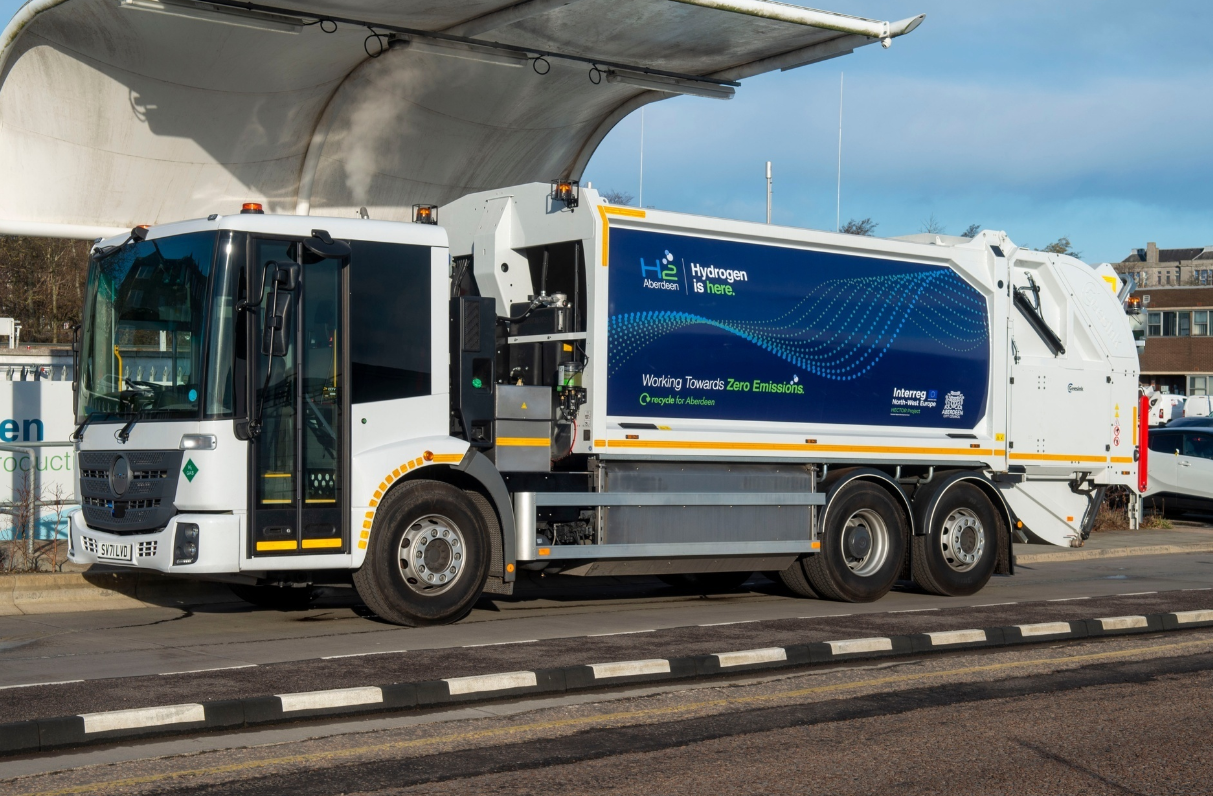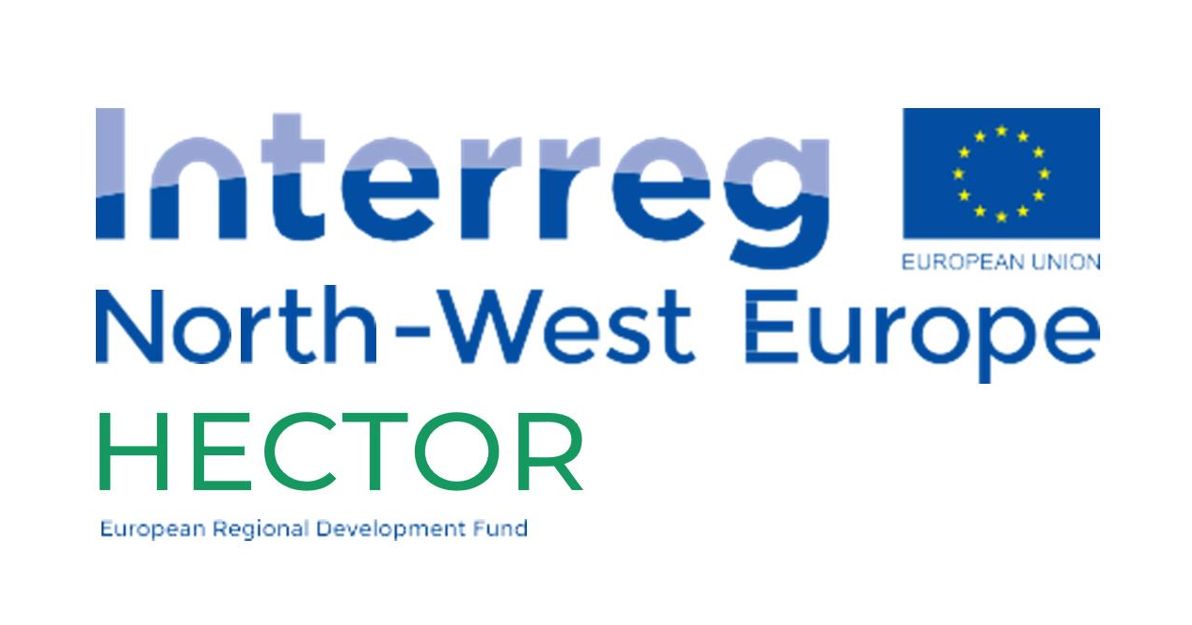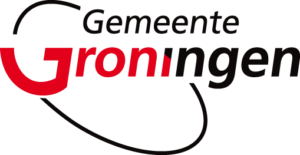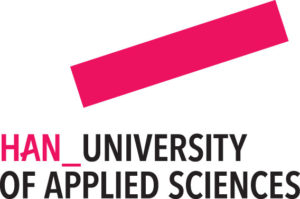
HECTOR: H2 RCVs
Project
Project Brief
The HECTOR Project (Hydrogen Waste Collection Vehicles in Northwest Europe) is an Interreg funded project that aims to demonstrate that fuel cell waste trucks provide an effective solution to reduce emissions from road transport.
Seven pilot sites across Northwest Europe – Aberdeen (Scotland), Groningen (Netherlands), Arnhem (Netherlands), Duisburg (Germany), Herten (Germany), Touraine Vallee de l’Indre (France), Brussels (Belgium) – will test fuel cell refuse collection vehicles in their fleets and learnings will be captured and disseminated.
Cenex will support Aberdeen City Council to capture learnings from the fleets and develop the final deliverables that aim to inform and support others wishing to deploy Fuel Cell Refuse Collection Vehicles (RCV)s.
Objectives
The HECTOR project is designed to enable a smooth introduction of a zero-emission technology in conventional fuelled fleets. It will then provide insight into upscaling and further deployment of fuel cell RCVs in the near future. Each deployment will aim to continue to operate the trucks after the end of the project.
Deliverables
Cenex will work with the trial sites to collate experience and learnings. We will develop an exploitation plan for each site and an overarching recommendations report on scaling up. We will also work to support the development of plans to introduce fuel cell RCVs on other fleets using experiences from the trial sites.
A pre-operational handbook will be updated using experience from the trials to help guide fleets through the considerations and process behind deploying fuel cell RCVs. This will include procurement guidance, training, servicing, and maintenance recommendations.








